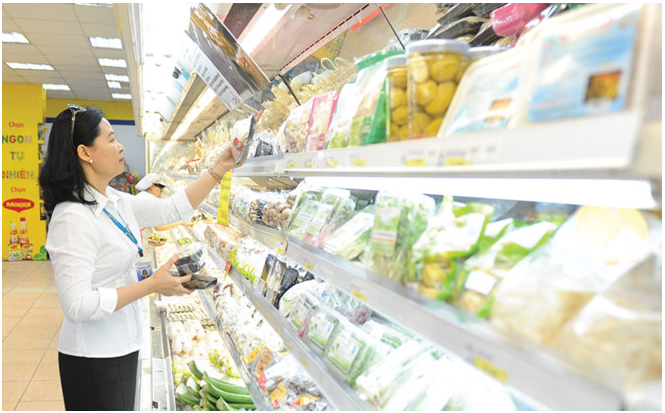Regarding proposals of the Ministry of Finance on the increase in value-added tax (VAT) for consumer goods from 10% to 12%, many economists and business leaders expressed their concern about the negative impacts of this policy on the consumer demand and economic growth objectives of the country.

Increases in VAT do not help to reduce overspending
Macroeconomic expert, Director of Market Research Market Intello Dinh Tuan Minh said that the need to reconsider the root causing the increase in VAT from the Ministry of Finance when making such suggestions.
“The reasonableness of the increase in VAT is to offset with public debt, budget deficit, offsetting between receipt and spending as the Ministry of Finance proposed and should be evaluated carefully and logically ", he mentioned.
According to his analysis, VAT is the highest form of tax revenue, which is the indirect taxes, levied on consumers; tax evasion will not be easily conducted. It is estimated that VAT revenues accounted for approximately 28% of the total national budget revenue annually, which are the highest collection rates in taxes, higher than corporate income tax and personal income tax. From this fact, the Ministry of Finance may propose an increase in VAT on revenue collection.
However, he also recommends that the Ministry of Finance needs to study carefully the effects of the increase in VAT before applying in practice, because certainly the VAT increase will cause many occupational group damages, thus harming the economy. Moreover, it is unreasonable to make an increase in tax in order to offset the budget deficit.
Dr. Nguyen Duc Thanh, Director of Viet Nam Institute for Economic and Policy Research (VEPR) also said that the increase in VAT proposed by the Ministry of Finance came from the aim of increasing revenue for the State budget, ensuring the spending activities, avoiding the overspending.
According to the statistics of the relevant agencies, by the end of July, the current expenditure of the state budget up to VND 511,000 billion rose by 7.4% compared to the same period last year and accounted for two - thirds of the total state budget expenditure.
According to Dr. Nguyen Duc Thanh, in order to reduce budget overspending, the need to tightly control of budget spending shall be applied rather than through the increase in tax.
Furthermore, if the increase in tax is applied to prevent budget overspending, rather aggressively seek to reduce, control the spending; it may lead to lack of control of budget spending.
Increase in tax – Decrease in demand
According to the analysis of experts, while the reduction of personal income tax and corporate income tax aiming to reduce the tax burden for businesses, but in a different aspect, the increase in VAT is one of the tax reform.
The increase in VAT may lead to increase in price of goods, thus it significantly affect the demand of the customers.
Economic expert Dinh Tuan Minh said that the Ministry of Finance needs to carefully analyze the impact the increase in VAT which prevents the efforts to stimulate consumption due to demand of the market and people is low.
According to Mr. Minh, tax reform need time and roadmap for people and businesses in the industries to adapt, ensuring that they do not affect the production plan of enterprises as well as the demand of people and the market.
Specialist Le Dang Doanh also recommended that the tax increase should be carefully considered and taken into account the opinions of businesses, experts and particularly from people who are the end users, etc.
For people, increase in VAT will lead to increase in quantity of goods, and decrease in spending. This will directly impact on businesses’ operations, because of reduction of demand will cause a decrease in revenue and profit, leading to slow economic growth and reduction of tax revenue.
Source: Vietnam Investment Review